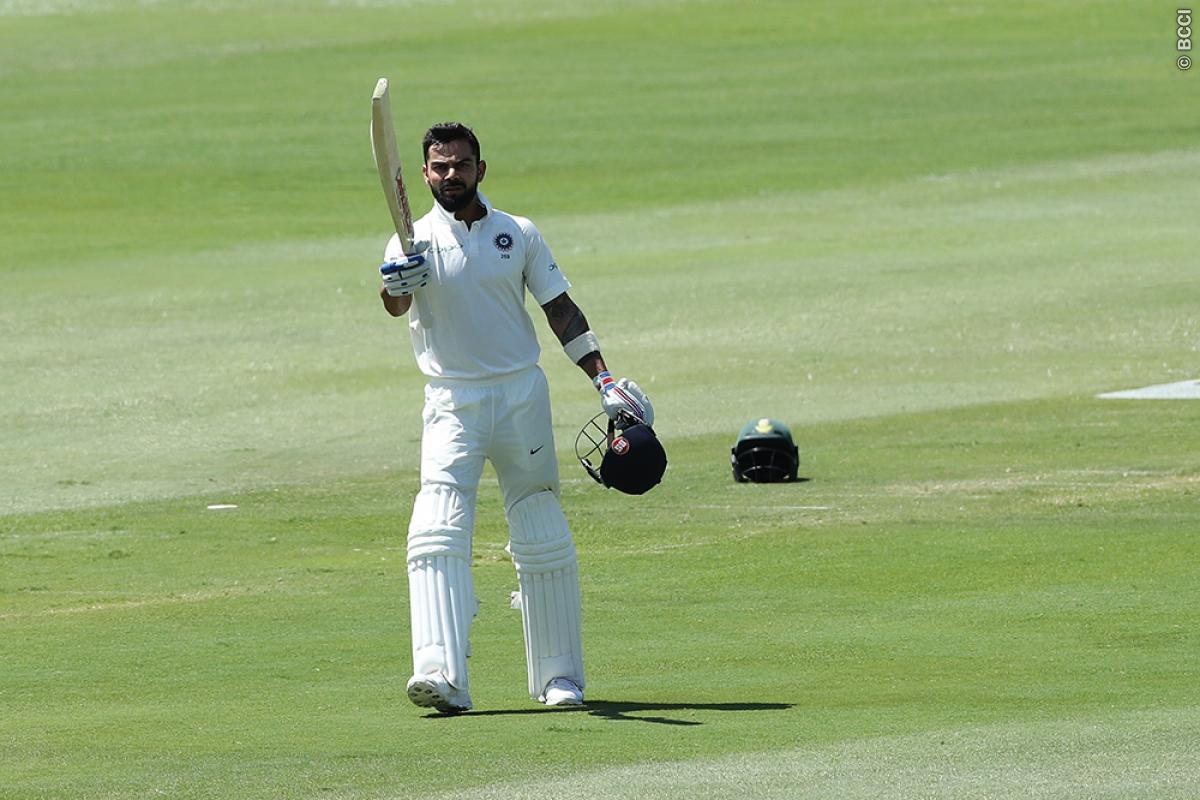Success or Greatness? The biggest question surrounding young Indian athletes

Sports in the 21st century have disapproved the old saying that survived the test of time for long - There’s no shortcut to success. Athletes today, whether a genuine talent or a trained perfectionist, experience success more often for a short term, which has seen mediocrity seep into their mindset.
Before Achilles had embarked on the journey of Trojan War with 50 Myrmidon ships, his mother, Thetis the nymph, had put two choices in front of him - either he could stay back and live a normal life, or go to the battle where his death was written and get his name etched in the history of earth and heaven forever. The Greek hero was obviously destined to become the greatest warrior ever and his choice, ergo, was easy.
While today’s world hardly puts a man up against such dire choices and consequences, these mythical stories have shown the path one ought to choose to live life in a godly way. Greatness has always demanded tremendous sacrifices, which doesn’t stem from talent but sheer willpower and determination. Hence, when Afghanistan opener Mohammad Shahzad stated in an interview last week that he needn’t follow Virat Kohli’s diet and fitness regime to get more runs for he could hit bigger sixes than the Indian captain, who is arguably the greatest ODI batsman of the current era, the claim reeked of mediocrity.
The 5’8” player, who weighs 91kg told PTI in an interview, “Jitna
What’s more concerning is that it doesn’t just reflect the meekness on Shahzad’s part but also the current ideology that most upcoming cricketers live by. Whether it be cricket or football, every sportsperson today have been given the same two choices - either toil your way through the road less taken and achieve immortality, or take the easier route that guarantees fast money and
The huge Chinese wave that swept all over European football a few years back, saw many talented players like Carlos Tevez, Oscar, Ezequiel Lavezzi, and Yannick Carrasco leaving top-level competitive football to earn astronomical amounts of money on offer from the Far East. Not only did it risk middling their talent but also their place in the national team. While cricket is yet to see a franchise-based overhaul like football, it is already seeing players leaving the traditional structure to become specialists in shorter formats that fetch them money and fame overnight.
The first such platform that comes to the mind is the Indian Premier League. The cash-rich, successful league introduced by BCCI hasn’t only been a fodder for Indian cricket but also for countries like Australia and South Africa. Players today try their best in the second tier Big Bash League and Caribbean Super League just to land a lucrative IPL contract. Hence, one wouldn’t really blame the likes of Rishabh Pant or Krishnappa Gowtham, if tomorrow they decided to hone their skills specifically for IPL frustrated by the tremendous competition in the national team in every position and the low salary at the domestic level. Kohli had a similar choice a decade back, and the young boy from Delhi had decided to take the path to greatness.
To choose that road one requires discipline and hard work - which is epitomized by Kohli’s widely discussed discipline, diet, and training regime. His magical transformation from a chubby U-19 World Cup winner to a world beater is well known, who otherwise would have been counted today in the hundreds like Shahzad or Unmukt Chand, sitting with tons of potential with no way to channel it.

Kohli has maintained time and again that his meticulous details to fitness stemmed from the innate urge to dominate world cricket in all three formats, and his determination has rightly rubbed on BCCI as well who came up with the Yo-Yo test in 2016, a prerequisite for national selection. A hint of the World number one ODI batsman’s prowess was seen in India’s tour of South Africa earlier this year, where Kohli went on to make a whopping 871 runs in 11 games that included four centuries, two fifties, and three MoM performances. This came under tremendous pressure of captaincy and not underperformance of the Proteas, where prior to 2018, Kohli had 524 runs in 12 matches including only one century.
Kuldeep Yadav, while explaining why it is more difficult to bowl to Kohli over Chris Gayle, had perfectly summed up his ability. “… Someone like Virat is a lot more difficult to bowl at as he will not let you bowl dot balls and besides hitting you for a four or six, will take twos and threes too. This creates pressure on the bowler. No doubt Chris Gayle is an impact player and dominates every bowler. He can hit you for a six or maybe a four but can't take singles and doubles. So there is always the option of bowling a dot ball to him and also taking a wicket," the chinaman bowler had said.
Dominating opponents in their backyard - this is exactly what Kohli did in South Africa, which only a chosen few have done in the history of the game. Even the likes of Sachin Tendulkar and Brian Lara haven’t exhibited the tremendous consistency and focus that Kohli brings to the crease. And one could hardly claim that he was born with those stupendous reflexes and stroke play because his hard work could be seen in his over-brimming confidence.
Cricket is one of the few sports in the world which gives leeway to its players to remain relevant despite being on the heavier side. And while it has seen overweight players like Shane Warne, Arjuna Ranatunga, or even Virender Sehwag achieving greatness, there have been others like Jessy Ryder, Ramesh Powar and more, who vanished in thin air after showing glimpses of their potential. Hence, unless Shahzad turns out to be as talented as some of the legends of the game, his weighty ideology could see him ending up as another mediocre player.
Whether one would be born talented or not, is all up to chance, but, hard work has always depended on an individual and as the adage goes, “hard work can beat talent every single time”. The most relevant example would be of Cristiano Ronaldo, who achieved greatness to sit alongside a football demigod like Lionel Messi. Unfortunately, the extreme commercialization of the 21st century has given birth to the third kind here - a Radamel Falcao – who would be talented enough to conquer the world but he would channel it only to gain short-term fame and get richer.

Comments
Sign up or log in to your account to leave comments and reactions
0 Comments